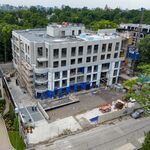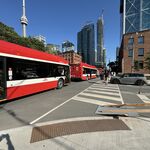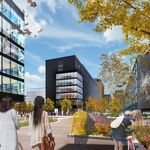TOareaFan
Superstar
It's common knowledge the Pape-St Andrew stub is the favorite to be built. I don't know why, but it is. And why do you think it's the RL, when in his white paper he identifies the DRL differently and the DRL is a north south route for half it's length regardless of what alignment it is. I am not saying you're wrong but no one else has said what the globe is saying.
No one else seems to be saying anything other than the whole tempest in a tea pot over the reporters being barred from the train.....the globe, at least, took a couple of lines of their story to report on what he said.
Looks, to me, like the Hudak campaign made two mistakes....the aforementioned campaigning on a train thing and using the words cross town to describe a train that goes across town.
CITY News just showed a clip from his event (once he finally got to Davisville) and he clearly referred to an east west "express" subway south of bloor.
In that clip, interestingly, he did not use the words cross town or Crosstown so either he said it at a different time or this is some accidental media interjection of a word(s) that is causing this confusion.
Last edited:




